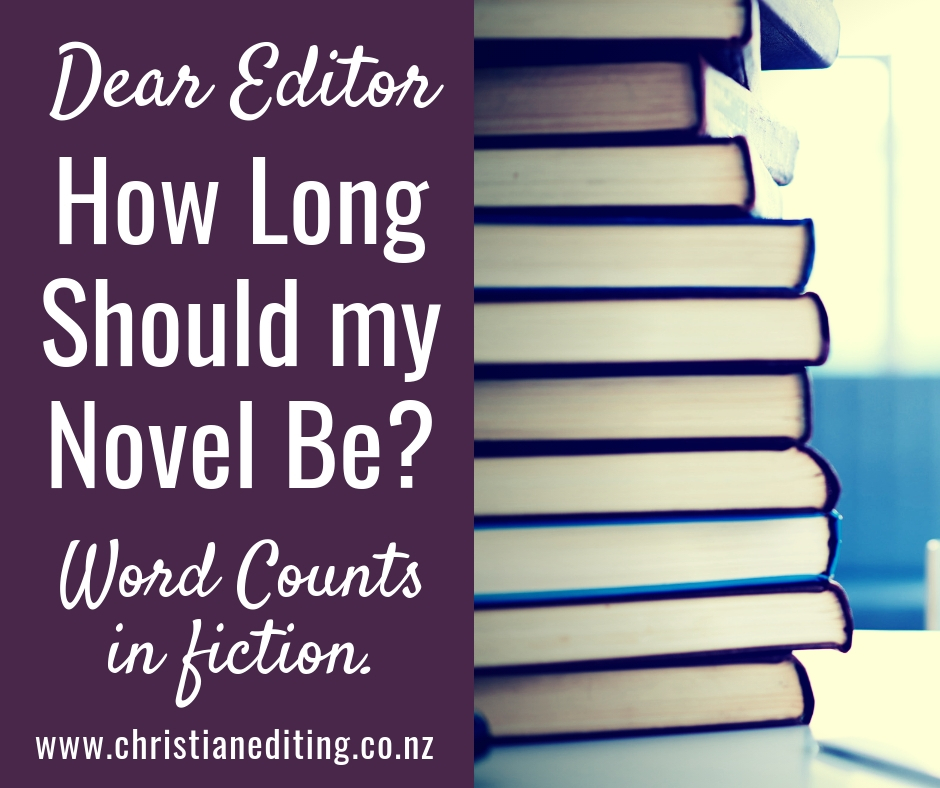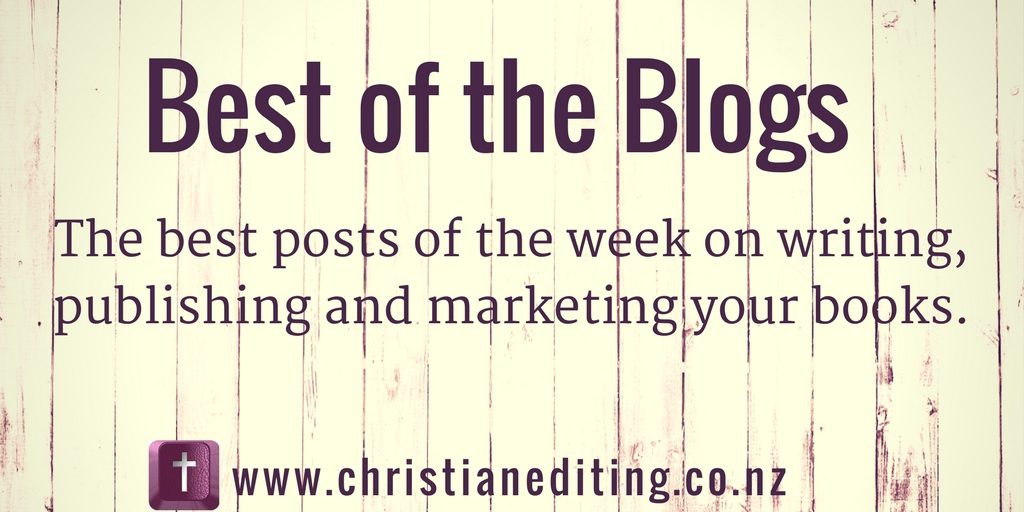How long should a novel be? This is a common question from first-time authors. Unfortunately, the answer is often vague: it depends.
First, let’s discuss the way we measure the length of a novel.
It was too difficult to count words in the days before word processors with an automatic word count feature, so manuscript length was measured in pages. One page, typed double-spaced and with a ½ inch (1.27cm) indent at the beginning of each paragraph was counted as 250 words. A writer aiming to write 1,000 words a day would therefore write around four pages, and a novel was somewhere between 300 and 400 pages.
The same holds true today: the novels you see in the bookstore or library are usually somewhere between 300 and 400 pages, which is approximately 75,000 to 100,000 words.
What If my Word Count is Shorter?
Sure, some novels are shorter than 75,000 words, depending on genre and the target age of the reader. But if we’re talking about a novel written for adults, then a shorter manuscript might not be classified as a novel. The Science Fiction and Fantasy Writers of America classifies Nebula Award submissions into four categories based on word count:
- Short story: under 7,500
- Novelette: between 7,500 and 17,500
- Novella: between 17,500 and 40,000
- Novel: over 40,000
American Christian Fiction Writers classify a novella as between 15,000 and 45,000 words, and a short novel as 45,000 to 70,000 words. Short novels are often category romance (see below). Publishers rarely publish a novella as a stand-alone story, but they may be published as part of a collection, or as the introduction to a new series.
Stories can go shorter: flash fiction (the kind often included in magazines) is between 100 and 1,000 words. And a story that is exactly 100 words long is a drabble.
What If my Word Count is Longer?
Manuscripts can go longer. Novels over 110,000 words are generally classed as epics or sagas, and are usually from well-known authors such as George RR Martin or JK Rowling. Publishers are more likely to take a risk on a long novel from an author with a track history of solid sales. Having a novel that is part of a series may help, as the publisher knows they will get some sell-through sales.
But consider: does the novel need to be this long?
A high word count may mean the author needs to do more editing. Or it may be a factor of genre. Or it may be that the author didn’t realize publishers (and readers) do have expectations around word count.
If you have a longer novel, make sure you are telling more story, not just adding more words. Many of the 450-page novels I read could have told the story more effectively using fewer words. Their stories could have benefited from stronger editing.
Word Count Depends on Genre
Certain genres require more words. Science fiction and fantasy novels often require a large amount of worldbuilding—introducing the reader to the world the author has created, introducing the people which inhabit the world and their cultures and customs, and (sometimes) explaining the science and technology. This information must be shown, not told, and showing almost always takes more words than telling.
Historical fiction also requires a degree of worldbuilding to bring the reader into the setting—and the further removed that time and place is from our own, the more information the author is going to have to give the reader in order to immerse the reader in the setting. Again, this information must be shown, not told.
In contrast, a contemporary romance or mystery novel requires less in the way of explaining the setting. Readers live in the modern world, and we don’t need to be shown what an iPhone is or does. Equally, familiar historical settings (e.g. Regency England or Civil War America) need little introduction. Readers often know these settings as well as or better than the authors.
Typical word counts for common genres are:
- Category romance (e.g. Love Inspired): 55,000 to 60,000 words)
- Cozy mystery: 65,000 to 90,000 words
- Crime: 70,000 to 90,000 words
- Fantasy: 90,000 to 120,000 words
- Historical fiction: 80,000 to 110,000 words
- Mystery: 70,000 to 90,000 words
- Romance: 70,000 to 90,000 words
- Rom-com: 70,000 to 90,000 words
- Science Fiction: 90,000 to 110,000 words
- Suspense: 70,000 to 90,000 words
- Thriller: 80,000 to 100,000 words
- Women’s fiction: 80,000 to 100,000 words
For more information, check out:
- Length Matters: A Word Count Guide by Genre by Dana Isaacson (previously a senior editor at Penguin Random House)
- How Long Should Your Novel Be? Our Editors Have the Answers from Reedsy
- Word Count for Novels and Children’s Books: The Definitive Post by Chuck Sambuchino at Writer’s Digest
Word Count Depends on Target Age
Young Adult novels tend to be shorter than adult novels, so between 45,000 and 70,000 words, but the word count is flexible (especially in science fiction or fantasy).
Middle Grade can be anything from 20,000 to 50,000 words or more, but average around 35,000 words. For lower middle grade readers (ages 7 to 10), aim for the lower end of this range. You can go higher for upper middle grade.
Picture books for children are almost always 32 pages and around 500 words.
What Do I Do if my Book is Too Long?
Edit.
In On Writing, Stephen King advises that authors should cut around 10% of their word count in their second revision, as this will make the writing tighter and improve pace. I find I have no trouble cutting 10% of the word count in many novels I edit. If this thought scares you, here are some books which might help:
- Track Down the Weasel Words by Angela Hunt (Amazon US | Amazon AU)
- The Word Loss Diet by Rayne Hall (Amazon US | Amazon AU)
- Strengthen Your Fiction by Understanding Weasel Words by Melissa Jagears (Amazon US | Amazon AU)
But this assumes the basic structure of your novel is sound. Reedsy says:
Most of the time, an overly long word count is a symptom of major plot or pacing problems in a novel — issues that need to be solved during the revision process.
A manuscript assessment is a great way to identify major plot or pacing problems. Or work with a critique partner or beta reader. They can help you identify plot or pacing issues that could reduce the word count.
Publishing
If you’re planning to submit to a traditional publisher, then it’s in your best interest to ensure your word count is consistent with publisher (and reader) expectations, which means abiding by the word counts above.
If you are planning to self-publish, then your word count could be shorter or longer than these guidelines. Yes, there are exceptions. Outlander by Diana Gabaldon is 305,000 words. The Historian by Elizabeth Kostova is 240,000 words.
However, don’t plan on being the exception. As Chuck Sambuchino says at Writers Digest:
Aiming to be the exception is setting yourself up for disappointment.
A lot of self-published authors write short fiction—it’s quicker to write, which enables them to publish more books. Many authors self-publish longer books, because they can.
Whether you’re writing short, on target, or long, make sure your writing is top-notch. Be ruthless. Tighten your sentences. Cut anything that doesn’t advance the story or deepen characterization.
Don’t self-publish a bloated 150,000-word saga just because you can.


